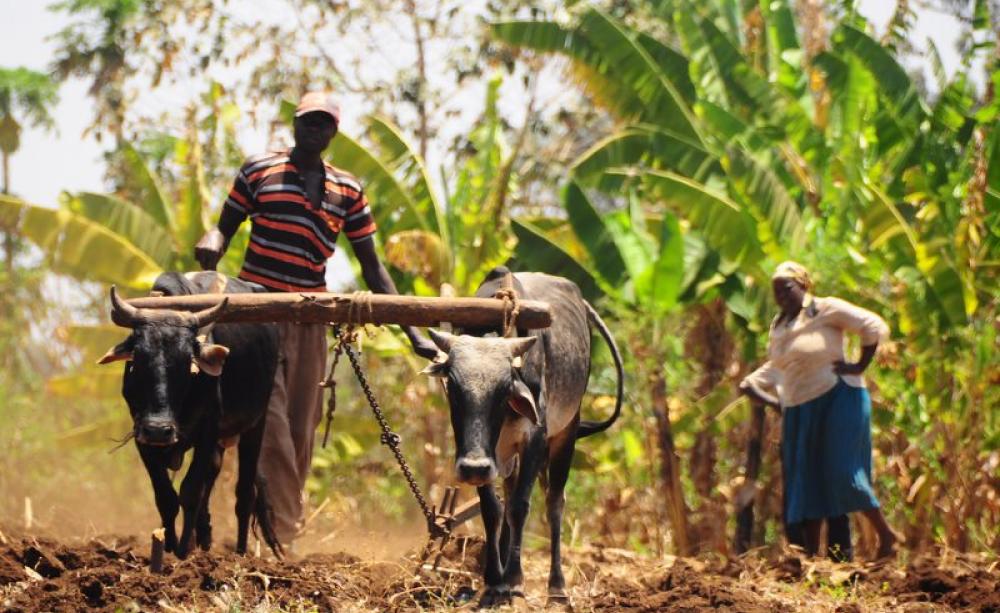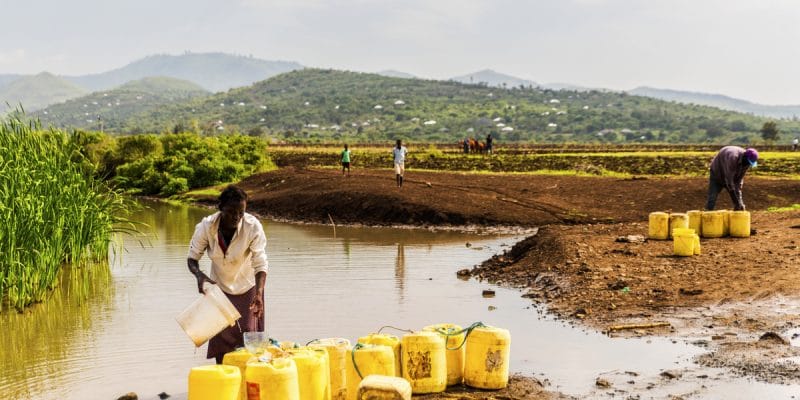Agricultural Production & Climate Change
As I touched on in my last blog post agricultural production is tightly linked to water availability. The decrease in this due to climate change is therefore going to have an impact on agricultural production as well as food security. As this is already a big problem in Africa this has to be addressed and resolved rapidly. Therefore I would like to discuss this problem in depth in this blogpost.
Prediction for agricultural decline
The Intergovernmental Panel on Climate Change (IPCC) predicted a decline in agricultural production of up to 50% for some parts of Africa for 2020 in its Fourth Assessment Report. This is mostly considering rain-fed agriculture. As food security and malnutrition are already a big issue in Africa this is going to increase these issues further as it does not guarantee a stable agricultural production. However this conclusion for Africa 2020 has been criticized as it might be based on sources mainly considering dry years more than the annual average.
After considering different more recents studies the conclusion is that Africa might be able to adapt to the changes in climate. Most likely not by 2020 as this is a very short time span to realize such big improvements. But for the further future they will have enough time to adapt to the change in climate and invent technical improvements. What would be desperately needed are advances in agricultural development. This is because the current irrigation and also the whole agricultural production Is highly inefficient as I also mentioned in my last blog post. So there is lots of space and need for improvement.
One suggested method of improvement is a change in crop mixtures. However for this to be effective there needs to be a change in international trade as well as an improvement in infrastructure. So most possible solutions require lots of changes across not only the agricultural but different sectors as there are dependencies. So for most changes to happen there is a need for international contribution and participation.
Climatic Changes
Another consequence of climate change which needs to be addressed is the change of climatic zones. This is of course relevant for the whole planet but due to my focus on Africa I’m going to stick to the changes within this continent.
There is most likely going to be increased aridity meaning that areas that were semi-arid or humid in area will become arid. As a lot of parts of Africa are already arid and the few areas which were less dry were the ones mostly used for agriculture this will have a big impact on food security. Therefore there will also be an increase in desertification. Rivers used for irrigation might dry out and droughts might lead to the evaporation of water reservoirs.
An example how this affects the local population is Egypt. It is a country consisting of 96% of desert and only 4% of irrigated land in which about 97% of the population is concentrated due to food security and agriculture. So if the river Nile is going to dry out there will hardly be any possibility for irrigation and therefore agriculture at all. The whole population will have to migrate to other areas where food production will be possible. But as these areas will become even more scarce across all of Africa there will be too many people relying on too little land. The logical result out of this is that famine and starvation will quite surely increase and there will be a decline in population due to this.
Furthermore the economic viability will be altered as it is mostly relying on agriculture as well. The consequences of this are very likely to be felt in different parts of world as well as there is a lot of cash crop cultivation in Africa. This means the agricultural products are going to be sold for profit to other countries. If this can’t be provided anymore there might be a change in the trend of industrialization. And lastly also the development of Africa will be strongly affected as it is largely dependent on the improvement in agriculture and the economy in general.
Moreover also the existing ecosystem will change drastically as it is probably not going to be able to adapt.
Water Management
One of the key things that are part of this issue is the poor water management in most parts of Africa which is a huge contributor to the ineffectiveness of agricultural production as mentioned earlier. A big part of African agriculture, especially in rural areas, is relying very much on rainfall. This is already quite problematic considering the variable climate in Africa but with climate change the variability in rainfall will only increase. There might be periods with very heavy rain which is then going to be lost due to runoff, evaporation and drainage as well as very dry periods. So the water needs to be stored and managed as it is desperately needed during the drought periods that are also likely to occur increasingly due to global warming.
There is a short documentary by the EU Science & Innovation department on Agriculture, water and climate change in Africa which explains the overall issues very well and states some examples on what is already being done.
Solomon Habtu who is the country coordinator of Ethiopia reports the increased occurrences of droughts. This has largely affected the local agriculture which has been highly dependent on rainfall. Especially the rural agriculture is mostly rain-fed as there is often a lack in water infrastructure systems. The droughts therefore lead to a production decline in the local agriculture sector and a food shortage. This might lead to starvation and presenting the local population with high uncertainties. It is not surprising that due to these changes there is a big trend in migration to urban areas or areas with more precipitation.
Of course there is hardly anything that can be done to influence the decline in precipitation. However what can be done is improving and renewing the water management strategies as well as the water harvesting techniques.
For example in Tanzania up to 85% of the existing rainfall is currently lost due to runoff, evaporation or drainage. This could definitely be improved. Local projects that have been installed to help with the issue are microdams, channels or surface covers in order to prevent evaporation. And there has already been a big success that could be seen. About 1000 people have benefitted already from the water projects. The farm produce could be increased because of the water availability which lead to an overall improvement of the livelihood of the area. This is a nice example to see how much can be achieved with a change in water management.
Other African countries should take inspiration from this success. A collaboration between African countries to exchange the best strategies as well as the best innovations would help increase improvement.
It is very important to adjust the agriculture to the environmental changes. There will be an increase in droughts, heavy rain and floods. Even though it is a challenge farmers need to keep their land productive and make better use of the available water. If this challenge could be tackled there would be increased food production and with that an increase in food security.



Comments
Post a Comment